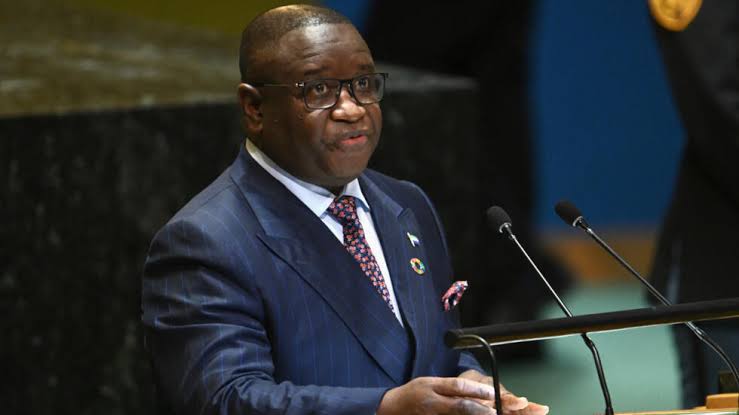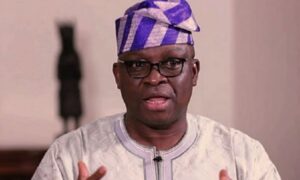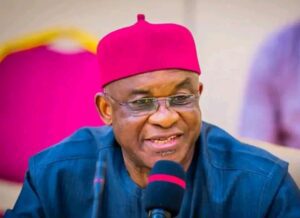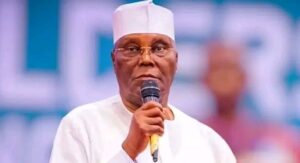𝐅𝐚𝐢𝐥𝐮𝐫𝐞 𝐨𝐟 𝐝𝐞𝐦𝐨𝐜𝐫𝐚𝐜𝐲 𝐢𝐧 𝐍𝐢𝐠𝐞𝐫𝐢𝐚 𝐰𝐢𝐥𝐥 𝐝𝐞𝐬𝐭𝐚𝐛𝐢𝐥𝐢𝐬𝐞 𝗪𝐞𝐬𝐭 𝐀𝐟𝐫𝐢𝐜𝐚 — 𝐄𝐂𝐎𝗪𝐀𝐒

The Economic Community of West African States has warned that a breakdown of democratic governance in Nigeria would trigger widespread democratic collapse across the entire West African region.
ECOWAS Commission President, Omar Touray, issued the warning on Monday in Abuja during the launch of the “Regional Partnership for Democracy,” a new initiative aimed at reversing the continent’s rising democratic setbacks. Represented by the Commissioner for Political Affairs, Peace and Security, Ambassador Abdel-Fatau Musah, Touray said democracy in the region is under intense pressure.
Touray commended Nigeria, Ghana, Senegal and Cabo Verde for sustaining multiparty democracy, stressing that the region’s stability depends heavily on Nigeria’s democratic strength. “Make no mistake, if democracy falters in Nigeria, democracy will collapse everywhere else in the entire West African region,” he said.
Musah urged West African countries to revisit the standard four-year presidential term, describing it as too short for leaders to initiate and complete meaningful developmental programmes. He warned that the region faces severe threats including unconstitutional changes of government, judicial manipulation and the deliberate exclusion of opposition parties.
He noted that the RPD programme—launched by Nigeria in partnership with the United Nations Development Programme and the Federal Government—comes at a critical moment when the social contract between citizens and the state is weakening. According to him, democracy in the region has failed to deliver basic services, infrastructure, and security, leading to public frustration.
Musah identified rising military coups, the entrenchment of incumbents, global geopolitical tension, terrorism, and “AI-powered misinformation” as factors deepening democratic vulnerability. He cautioned that relying solely on regime security without development amounts to building “an edifice on sandy foundations.”
Nigeria’s Minister of Foreign Affairs, Yusuf Tuggar, said the RPD marks “a new chapter” for Africa’s democratic evolution, noting that despite existing continental mechanisms, political instability persists due to political violence, low citizen participation, administrative impunity and weakened judicial and media institutions.
He argued that Africa’s governance problems stem partly from the uncritical adoption of foreign political models that ignore the continent’s cultural and historical realities. Tuggar described the RPD as an African-grounded alternative built on local values and informed by global best practices.
He added that the new initiative is more than a policy tool, calling it “President Bola Tinubu’s contribution and Nigeria’s gift to the strengthening and flourishing of democracy in Africa.”
The RPD aims to strengthen electoral bodies, improve early-warning systems for unconstitutional power transitions, enhance youth participation, counter disinformation, and promote long-term political stability across the region.
UNDP Resident Representative, Elsie Attafuah, praised Nigeria for spearheading the initiative, calling the partnership a “compact of values.” She highlighted four key pillars: strengthening institutions and accountability; ensuring inclusive participation; promoting credible elections; and deepening regional cooperation. According to her, the initiative is designed to scale existing democratic successes and make democracy a “lived reality” for Africans.





